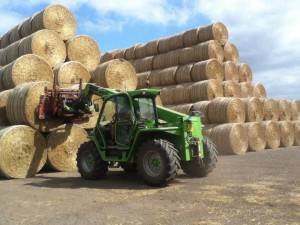FARM WORKERS’ RIGHTS
As a rule, most agricultural workers get:
- Agricultural Minimum Wage (can be higher than the National Minimum Wage).
- Normal pay if a natural occurrence stops work (e.g. inclement weather).
- Extra pay for night work.
- Agricultural Sick Pay (ASP) and paid holiday.
- An allowance for being ‘on call’.
- Rest breaks of 30 minutes. This only applies to those who are 18 or over and working more than five and a half hours a day.
Note: Employment rights for farm workers employed from the 1st of October 2013 in England differ from those in Wales. Scotland and Northern Ireland also have their own rules for agricultural workers’ rights.
Agricultural Rights for Trainees
Farm workers’ rights for trainees differ to the standard rights of agricultural and farm workers. Variances include no paid holidays and specific agricultural pay rates during their training.
Expert Help and Advice
Employees who started work before the 1st of October 2013 in England can contact ACAS for advice. You can contact them through the ACAS helpline or through the ACAS Helpline Online.
Contact the Rural Payments agency if you want to make a complaint. For further advice on wages and rights in Wales you can contact:
Sustainable Land Management Branch
Telephone: 0300 062 2298
Email: [email protected]
Sustainable Land Management Branch Address
Welsh government
Rhodfa Padarn, Llanbadarn Fawr
Aberystwyth, Ceredigion, SY23 3UR
Terms and Conditions for Agricultural Workers
Farm Workers in England
The terms and conditions of employment for workers employed in England before 1st October 2013 are set out in the ‘Agricultural Wages (England and Wales) Order 2012’.
Farm Workers in Wales
In Wales, employers give new agriculture workers an ‘Agricultural Wage Order’. It includes most of the standard terms and conditions of employment. They must also provide all their employees with a ‘written statement of employment particulars‘.
What is an Agricultural Worker?
 An agricultural worker gets classed as someone who works in:
An agricultural worker gets classed as someone who works in:
- The business of farming and rearing of animals (livestock).
- The industry of growing produce for sale. This can include growing non-edible crops grown by horticultural farms.
- Forestry, market gardens, or nurseries.
- The upkeep of woodlands, reed beds, or meadows and pastures.
Note: This is not a comprehensive list. The Acas helpline has a full list of jobs descriptions classed as agricultural work.
ALSO IN THIS SECTION
Agricultural Pay and Overtime
Review a current list of farm worker pay rates and how the grading system affects weekly pay and hourly overtime for agricultural workers.
Grades and Categories
Agricultural worker grade and category determine your rights, entitlements, and minimum wages. Check a section explaining the differences between farm job grades and categories.
Agricultural Tenancies
An employer may provide accommodation through an agricultural tenancy. The guide clarifies the rules for farm workers who live in tied accommodation.
Gangmasters in Farming
An individual, agency, or company that provides workers for farming is better known as a ‘gangmaster’. Check what licences agricultural gangmasters must have to provide workers for farms.
Note: You can check how the Gangmasters and Labour Abuse Authority (GLAA) protects workers from labour exploitation and how to report issues.
Changes to Employment Terms
The change in employment terms and conditions applies to workers starting a new job in agriculture or horticulture in England from the 1st of October 2013.

